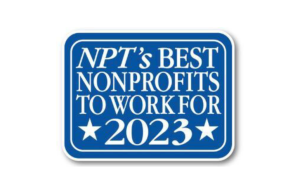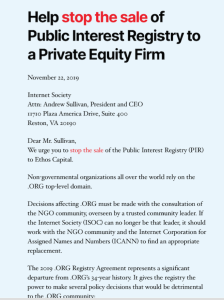Increased compensation and inflation impacted the bottom line 9 out of 10 nonprofits and managers at those organizations remain concerned with talent acquisition and retention. But unlike one year ago, the economy and rising utility and operating costs have emerged as additional concerns.
These factors and an end to most pandemic-era government funding led nearly half of respondents to report a year-over-year decrease in net income for 2022. Small organizations were especially impacted and were 32% more likely than large organizations to report a decline in financial position.
The “2023 State of the Nonprofit Sector” report was compiled from responses submitted by 195 organizations that chose to participate. The survey was conducted in November and December 2022 and was open to all sizes and types of tax-exempt organizations.
“Despite this economic turbulence, most organizations reported they are satisfied with their current financial position and almost all of them are looking inward, spending more on their current employees by increasing salaries and enhancing benefits,” said Dan Prater, senior managing consultant with accounting and professional services firm FORVIS, which commissioned the survey.
Nearly all (93%) of respondents absorbed at least some salary and benefit cost increases as managers struggled to maintain staffing levels necessary to deliver services amid the continuing national and global labor shortage. Of the respondents, 57% said employee compensation costs went up “somewhat” and 36% said they went up “significantly.”
Economic and staffing issues and their impact on program delivery remain a paramount concern for managers at 40% of human services-focused organizations that reported “significant” decreases in revenue – more than for any other focus area within the sector. As funding under the CARES Act of 2020 and American Rescue Plan Act of 2021 began to sunset, the falloff in funding coincided with what 68% of respondents across all focus areas said was an increased demand for programs and services.
“Major factors contributing to the surge in demand surround the persistence of COVID-19 as the virus continues to have a profound effect on individuals, neighborhoods, and economies as well as communities that are struggling with record-high inflation and global challenges,” Prater said.
More generally, 78% of respondents across all sector areas were still having trouble filling staff vacancies and 50% reported having trouble delivering programs and services due to these staffing challenges.
One of the few bright spots regarding staffing appears to be the sense of normalcy that has settled around the concept of remote and hybrid work. Maintaining staff effectiveness and efficiency while working remotely was one of the top concerns when the study was last conducted at the end of 2021. “As remote working becomes more common and as some employees migrate back into the office, this is no longer a key concern for leaders,” Prater wrote in the report.
Participants in this latest survey were heavily skewed toward the Midwest (44%) and South (19%). However, FORVIS spokesman Mike Brothers told The NonProfit Times the answers showed little variation from one geographic region to another.
FORVIS and its predecessor firm BKD began conducting this annual study in 2020 and plan to continue doing so, Brothers said. The full 35-page report and accompanying news release can be found at https://bit.ly/3ydUoZD.











